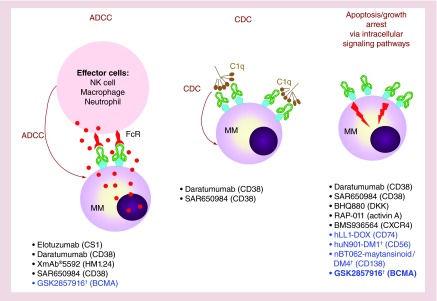Figure 2. . Mechanisms of action of monoclonal antibody-based targeted therapies against multiple myeloma.
Therapeutic IgG monoclonal antibodies (mAbs) are designed to mediate ADCC or CDC, and can also directly inhibit growth or trigger apoptotic signaling pathways. Examples listed are mAbs tested in recent clinical trials in MM. The majority of MM target receptors/cell surface proteins on MM cells or extracellular factors (i.e., DKK1, activin A) in the BM microenvironment. Antibody drug conjugates are designed to directly kill MM cells to increase effectiveness of naked mAb. These include mAbs targeting CD56, CD138, CD74 and BCMA (the focus of this paper). In preclinical studies, only BCMA antibody drug conjugates can both interfere with ligand binding and elicit ADCC to lyse MM cells as well as directly induce apoptosis due to potent drug conjugates released inside the tumor cells following Ab–antigen binding.
†Ab–drug conjugate.
Ab: Antibody; ADCC: Antibody-dependent cellular cytotoxicity; CDC: Complement-mediated cytotoxicity; MM: Multiple myeloma; NK: Natural killer.

